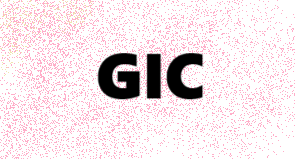Student Direct Stream (SDS) is a fast-track application channel for study permit applications launched by the IRCC. It has been implemented since 2018. SDS simplifies funding requirements and speeds up the approval process. Officials stated that SDS applications will be approved within 20 days.
UPDATE: SDS ends on November 8th, 2024. Since then, all study permit applications are in a regular study permit application way.
Basic requirements and document list:
- Admission letter from a Designated Learning Institution (DLI) in Canada.
All primary and secondary schools in Canada are DLI, and all public colleges and universities and some private colleges are also DLI. During the application process, our RCIC will help you verify and school’s qualifications.
- Receipt of paid tuition for the first year.
- A Guaranteed Investment Certificate (GIC) of 10,000 Canadian dollars has been delivered.
GIC is a capital-guaranteed fixed-term investment product, and it is a mature financial product in Canada. In the study permit application, students purchase the GIC to prove that they can afford the first year of living expenses. After obtaining the visa and landing in Canada, GIC will refund the first sum of money to the student, and then it will be refunded to the student every month or two. All of GIC will be refunded within one year. If the study permit application is rejected, GIC will return the full amount.
- Complete the medical examination ahead of time
- If the applicant is over 18 years old, he/she must provide a crime-free certificate from all countries and regions where he/she has lived continuously for 6 months after the age of 18.
- Copies and transcripts of all degrees, diplomas or certificates of the applicant recently attended a high school or higher education institution
- Language scores: Please note: all tests must be taken in person. Online tests will not be accepted.
- Canadian Academic English Language (CAEL) Test– minimum overall score of 60
- Canadian English Language Proficiency Index Program (CELPIP) – each ability higher than 7
- International English Language Testing System (IELTS) Academic-minimum overall score of 6
- International English Language Testing System (IELTS) General– each ability higher than 6
- Pearson Test of English (PTE) Academic– minimum overall score of 60
- Test of English as a Foreign Language (TOEFL) iBT minimum overall score of 83.
- Test de connaissance du français (TCF) Canada – equivalent to a Canadian Language Benchmarks score of 7 or higher for each ability.
- Test de connaissance du français (TCF) tout public– minimum overall score of 400
- Test d’évaluation de français (TEF) Canada-each ability higher than CLB7
- Test d’évaluation de français (TEF) 5 épreuves– minimum overall score of 400
- If you want to study in Quebec, you need a Quebec Acceptance Certificate (CAQ)
- A scanned copy of a valid passport
- Digital Photo, must meet Canadian standards, taken within six months, white background.
- A scanned copy of National ID card and a notarized copy of the English or French translation, if the original ID is not in English or French
- The study plan.
- Proof of funds.
It must be proved that the applicant has sufficient funds to cover the cost of living in Canada. The current requirement is at least 10,000 CAD per year. Applicants should provide evidence of at least 12 months of accumulated capital history, such as a deposit certificate within two months, a real estate certificate, a vehicle registration certificate, an explanation of the source of funds, etc.
If the applicant’s funds are provided by parents or relatives, an income certificate of the parents or relatives shall be provided, including a letter of employment letter. If the applicant owns a company, a notarized copy of the business registration certificate shall be provided. In addition, it is recommended to provide proof of parent-child relationship or kinship.
- If the applicant is under the age of 18, a declaration of guardianship of parents and Canadian guardian is required.
- If the applicant will receive a scholarship or other financial aid, a detailed description document should be submitted.
- Application Form IMM1294, Family Information Form IMM5707, Education and Employment Details Form IMM0104
Our experience and advice
Canada welcomes hundreds of thousands of international students from all over the world every year (the statistics in 2019 are 642,480). In October 2020, the Canadian Department of Immigration and Immigration announced a grand plan to accept 1.2 million immigrants in the three years from 2021 to 2023, of which the immigration of overseas graduates will be an important part. The Canadian government will continue to maintain an open and welcoming attitude towards international students.
Canada is rich in educational resources and the quality of education has a high international reputation. Compared with other developed countries (the United States, Australia, the United Kingdom, etc.), tuition fees and living expenses in Canada are much cheaper. Moreover, Canadian society is very friendly to international students. It is relatively easier for international students to immigrate to Canada permanently after graduation.
Since the IRCC launched the SDS in 2018, it has expanded from the original 4 countries to 14 countries, including Antigua and Barbuda, Brazil, China, Colombia, Costa Rica, India, Morocco, Pakistan, Peru, Philippines, Senegal, St. Vincent, and the Grenadines, Trinidad and Tobago, and Vietnam.
If you want to study in Canada, you are welcome to contact us. We will help you apply for schools and study permits.


